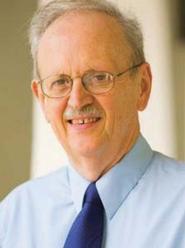
Ken Bain, professor of history and urban education at the University of the District of Columbia, came to the Hill on Sept. 29 for a talk titled “What the Best College Students Do.” The lecture was centered around material from his award-winning 2004 book with the same name.
Bain was inspired by fictional character Father Guido Sarducci’s comedy sketches called the “Five Minute University,” in which he claimed to be able teach you everything an undergraduate student will remember five years after college. Although the sketch was a joke, for Bain it raised a very real question: What is the purpose of a college education?
Bain interviewed a total of 36 successful professionals from a variety of fields to determine how they approached college. He found that across the board, those he interviewed said that college was a time to develop oneself and develop the dynamic powers of one’s mind.
“College teaches you how to find a creative and adaptive way to solve a problem, and how to enjoy taking on a challenge that no one has solved before,” Bain explained. “The world is changing so rapidly that we need adaptive experts,” he continued, “experts who can solve a messy problem, a problem that can’t be googled.”
According to his research, Bain determined that one’s attitude determines what he or she will get out of college. “To be a successful student, you have to take control of your own education,” he stated, “and to do that, you have to learn about yourself.”
“You need to understand that you are unique,” Bain reiterated, “that no one in all of human history has ever had your body chemistry and personal history; you can originate ideas that others never could.” He encouraged the audience to start a conversation with themselves. Reminiscent of the college’s motto, “Know Thyself,” the sentiment struck a chord with the audience.
Just as important as knowing oneself, Bain maintains, is understanding those things that influence you, such as human history, societal norms and personal genetic history. He cautioned the audience to beware of the distractions that keep you from getting a bigger reward in the long run, what psychologist Walter Mischel calls “deferred gratification.”
A life of learning begins when we are born, which leads to noticing patterns and constructing models of how the world works. These models can then be applied to new situations, which Bain regards as nothing short of a miracle. “College is important,” he continued, “because it forces you to break out of [those models] and attempt to construct a new scheme of how the world works.”
Bain acknowledged that “you can learn something from everyone. But in order to consider new ideas, and either integrate or reject them, you have to encounter a whole bunch of people and fertilize your mind with contrasting opinions.” The most important thing, he concluded is to remember that intelligence is not fixed, “there is always time to develop and grow.”
Posted September 30, 2014
